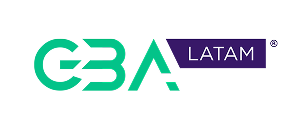Data quality refers to the ability of data to meet user requirements and expectations and to support effective decision making. This includes verifying the accuracy, completeness and consistency of data, as well as eliminating duplicate or incorrect data.
In this opportunity we will share with you how our client, after a digital transformation process, managed to consolidate the Billing, CRM, Collections and S.A.C information of all its consumers. It was key that all this information was located in a single data repository with a single structure and format that would allow practical access for the use of all areas.
Data quality and customer insight
Data quality refers to the extent to which the data is accurate, complete, consistent, relevant and up-to-date for its intended use.
Data quality also relates to data management, which includes data collection, storage, processing and analysis. Good data management can help improve data quality by ensuring that data is clean, organized and accessible.
Our client: a major electricity trading company.
The purpose: it was determined that there was a need to have a single database that complied with data quality best practices, it was necessary to ensure: Existence, Validity, Consistency, Completeness, Accuracy, Relevance. The database had seven fields of information and the new database had to contemplate up to fourteen fields of information that would allow them to have the ability to contact their customers through any communication channel.
The GBA Solution: Smart Data & Holistic Data Quality
Smart Data: We built for our client a database called GOLDEN RECORD in which we integrated all data sources (online/offline). We suggested a new lay out composed of more than forty fields of information. This would allow not only to improve the quality of the existing information but also to increase the knowledge of the final customer. After performing the data quality processes, we applied the information enrichment and complement processes for all the empty information fields.
For identity documents, identity validation was performed for natural and legal persons, guaranteeing the veracity of each piece of information. Finally, having a clean, complete and truthful database, the enrichment of information was carried out in line with Colombia’s personal data protection law.
Smart Analytics & Smart Geo: Using transactional customer information and supported by the Attribute Set by GBA Smart Marketing® we added to the database a segment brand by customer value (RFM). And a sociodemographic segment brand with more than forty attributes of income, expenses, location, life cycle, among others.
Finally, a database that feeds the CRM and maintains the quality of the current information was set up for the customer. As well as the new information that is collected daily not only from current consumers but also from new ones.
Smart Contact: With a quality database, they were diagnosed at the time:
- Current vs. potential contactability.
- Current multichannel vs. potential.
- Permissions (Personal Data Protection Act).
Campaigns were planned to increase multichanneling as well as to obtain and update the permissions of Law 1581 of 2012 (General Regime of Personal Data Protection) as well as the Statutory Law 1266 of 2008 HABEAS DATA that would later allow us to carry out all kinds of campaigns.
Our client’s business, found opportunities in:
- Identification of customers with high-high and medium-high propensity to purchase other products and services.
- Opportunities for differentiated attention based on the average ticket of current customers.
- Identification of industrial and commercial prospects with high consumption potential.
Results
9.11% of the ID’s (Cédulas, Rut, C,E) were inconsistent with the stored information, therefore:
- Names and/or surnames were supplemented for 63.44% of the records.
- Erroneous emails were detected in 13.44% of the records.
- Data were supplemented and corrected in the fields of physical address, physical telephone and cellular phones for 91.22% of the database.
- 3.11% of the database consisted of deceased persons.
- 95.66% of the database was geocoded.
- Fields with information from RRSS were added for 24.66% of the database.
- 18.76% of the records were duplicated which meant for the client a waste in its marketing budget of 4.55% as well as a significant attrition for the brand.
Good data management improves data quality by ensuring that data is clean, organized and accessible.
In short, data quality is essential to ensure that data is reliable and useful for its intended use, which in turn can improve the effectiveness and efficiency of organizations in decision making.
For GBA Smart Marketing®, the value and interpretation of data plays a key role in the development and innovation of our portfolio of customized solutions for each of our clients.
Contact us for more information about our services.



Add a Comment